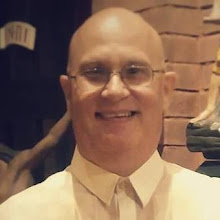True to their formula, Sunday's concert combined the new and old, familiar and rarely heard. The Sonata # 2 for Flute, Violin and continuo by Alessandro Scarlatti opened the concert. 20th century composer Jean Francaix took 5 of Alessandro's son Domenico's sonatas and orchestrated them for Flute, Violin, Viola, Cello and Harp. The first half concluded with Vivaldi's Concerto for Bassoon and Orchestra. The second half consisted of a single work, the atmospheric and delightful "13 Ways" by American Thomas Albert, a setting of Wallace Stevens' "13 Ways of Looking at a Blackbird".
The Alessandro Scarlatti was a fitting opener, but suffered a bit from some iffy intonation and a too soft harpsichord. I don't like the harpsichord banging and chattering too loud (like two skeletons copulating on a tin roof in a thunderstorm according to Sir Thomas Beecham) but it should also be heard as at least part of the texture and harmony.
Francaix, via his skillful orchestration, took the more familiar Domenico's sonatas and made them into something new and fresh. Once could be excused if it seemed these were originally written in the early 20th century; characteristic they are of neo-classic Stravinsky or members of Les Six. As with Schoenberg and Webern's orchestrations of older works, Francaix's quintessentially sec French orchestration makes meaningful melody and motives out of what seem like common baroque ornaments. Giving melody and prominence to the cello, the liquid softness of the harp plus the mellow darkness of the viola adds some unexpected color as well. As one of my friends who attended the concert quipped, "I liked the redone Scarlatti better than the real Scarlatti." Scarlatti's sonatas are masterpieces on their own, but Francaix took them out of their shell and led them through a jaunty tour of France.
In the short and sweet Vivaldi (with an orchestra of a couple of strings and continuo), Soloist Joshua Hood reminded us that the bassoon is in all aspects a bass oboe with all that instrument's color and expressiveness.
Thomas Albert's 13 Ways (1997) is a most charming and approachable piece and was well received by the large audience. Each of the 13 sections is prefaced by some lines from Wallace's poem, read by various members of the ensemble (flute, clarinet, string trio, piano and percussion, with various doublings from the winds). Certainly atmospheric and quite descriptive of everything from the chattering and flocking of the ubiquitous birds, frosty mornings and languid evenings. The 5th look (..the blackbird whistling or just after) had the ensemble striking metal triangles and then dipping them in buckets of water for a most otherworldly effect, all while a piccolo chattered away. The faster or more dramatic sections used a breezy John Adams minimalist style while the 12th look (the river if flowing, the blackbird must be flying) had echoes of Bernard Hermann's imaginative film scores with its alto flute, bass marimba and slowly undulating strings.
The ensemble clearly had fun with the piece, which not only included the aforementioned water percussion and the narration but also involved the players moving occasionally around the room. Well played and presented, and compared well with the recording on Cedille records by the Eighth Blackbird ensemble, for whom the work was composed.
The ensemble clearly had fun with the piece, which not only included the aforementioned water percussion and the narration but also involved the players moving occasionally around the room. Well played and presented, and compared well with the recording on Cedille records by the Eighth Blackbird ensemble, for whom the work was composed.
I missed the first concert last weekend but will be present at the next featuring a rarely heard trio for Flute, Viola and Harp by Carlos Chavez and the wonderful Musique de Chambre # 1 by Martinu.



No comments:
Post a Comment